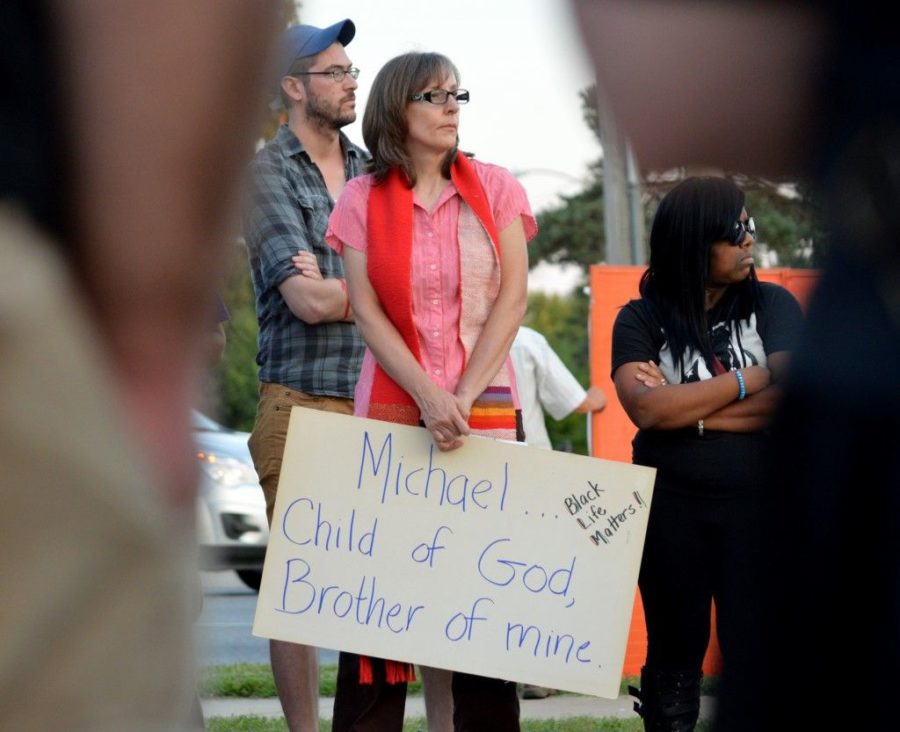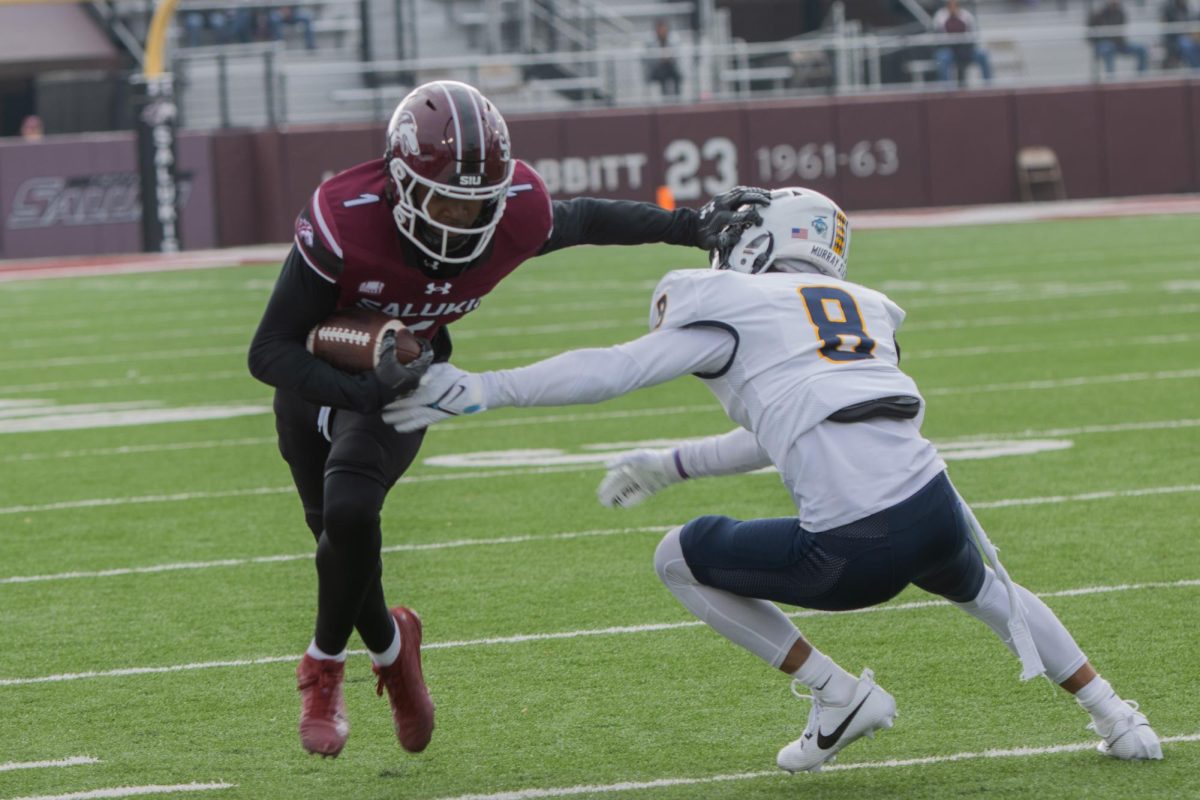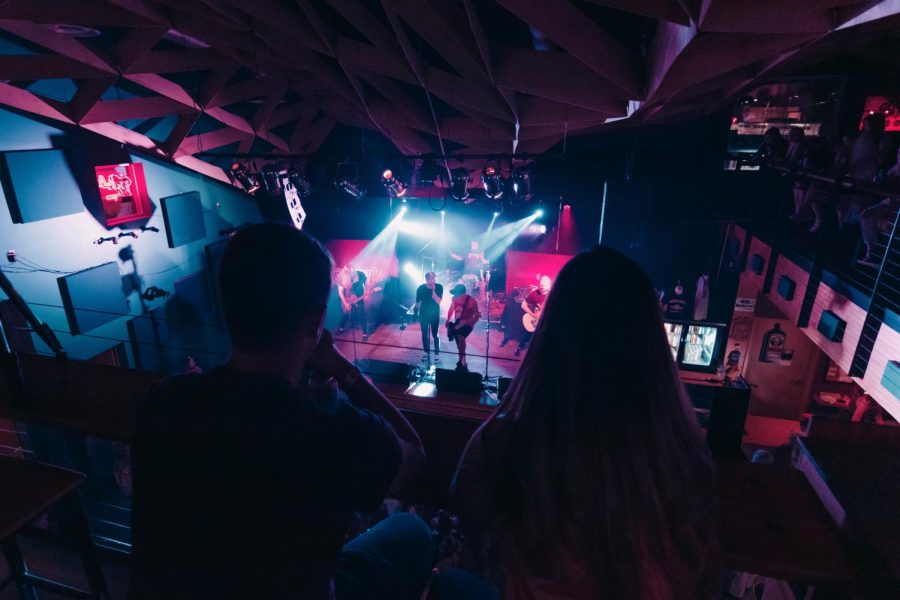Carbondale demonstrates solidarity with Ferguson
August 14, 2014
Like many people around the country, Carbondale community members joined together Thursday to stand in solidarity with those facing turmoil in Ferguson, Mo.
A St. Louis County police officer shot Michael Brown, 18, who was reportedly unarmed, on Aug. 9. Since then, the Ferguson community has held vigils and demonstrations, which escalated to riots and protests in response to police brutality.
Craig Ross, of Carbondale, put together a Facebook group for people to “show solidarity with Ferguson and other places that face violence and repression at the hands of the racist militarized police forces in this county,” the description stated.
Advertisement
“We found out that other places around the country were conducting nationwide vigils and rallies, so we decided to hold one tonight as well,” Ross said.
Ross said standing in solidarity with Ferguson is important because African-Americans are frequently killed in the United States.
“This is terrorism, and everyone loves to talk about terrorism in other places, but never wants to talk about it here” he said. “I think it is important because regardless of what skin color or ethnicity a person is, it is important for me to be here and show solidarity, even though I’m a white male.”
Ross said he is disappointed in how the media is handling the Ferguson incident.
“I think the media manipulates it because in one way, they want a story,” he said. “So instead of painting this story as one of injustice, they are going to paint it as just some violent thugs who are upset about a killing.”
At Thursday’s demonstration, roughly 50 students, professors and community members gathered in a circle, held signs and gave speeches on how they felt about the murders of African-Americans within the country.
“There are no rioters in Ferguson,” the Rev. Joseph Brown, a professor in Africana Studies, said. “These are people who destroyed property in one night when they had been treated as property for 400 years.”
Advertisement*
Shanetra Miles-Fowler, a mother of three from Carbondale said she attended the vigil because she is devastated by what police are doing to people.
“I was honestly living my life with my eyes wide shut,” Miles-Fowler said. “Then the murder of Trayvon Martin really woke me up and I was able to see all the brutality happening around me, not only to blacks but to other races as well.”
Miles-Fowler said in order for police brutality to stop, police presence should always be recorded by civilians.
“Like someone in the crowd said, we should be more vigilant in recording police,” she said. “They should be required to wear those cameras, and they should not be able to turn them off.”
Byron Taylor, a senior from Chicago studying studio art, said he came out to demonstrate his awareness.
“A lot of people think that just because we have a black president, that we are post race,” he said. “Mike Brown is just one of many examples of how often many of us are unlawfully getting killed.”
Taylor said the major way police brutality can end is everyone knowing the laws, protecting themselves and policing themselves.
“I think we need our own communities and our own police forces so the racial aspect can be taken out of it,” he said. “No we are not going to be able to get rid of the police, but if we can control what goes on in our own communities, there would be no need for them to come into our own neighborhoods.”
Najjar Abdul-Musawwir, an associate professor of fine arts at the university, said he came out to the vigil because he wanted to participate in the protests at Ferguson.
“It’s important to be here because you always get more when you’re in unity,” he said. “My concern of what’s happening in America makes me question even more of what it means to be post racial.”
Abdul-Musawwir said this period of police brutality reminds him of the Jim Crow period in the south.
“When they can’t marginalize us politically with systems, they resort to physical abuse,” he said. “We are talking about officials who are in power to protect and serve the citizens, not black or white, but citizens and these individuals have turned their backs on us.”
Ross said that in order for police brutality to end, people must look at the past social movements and see how they worked.
“This myth of criminality of blackness comes out of how the prison system was formed,” he said. “As far as tactics against this, we need to get together and organize against this war on blackness, this so-called war on crime and the capitalistic exploitation we’re all facing.”
The same group of community members will hold a march at 1 p.m. Saturday at Town Square Pavilion. For more information visit Ross’ Facebook page, “Solidarity with Ferguson: End Police Brutality: #NMOS14 Vigil.”
Kia Smith can be reached at [email protected] on Twitter at @KiaSmith__
Advertisement








